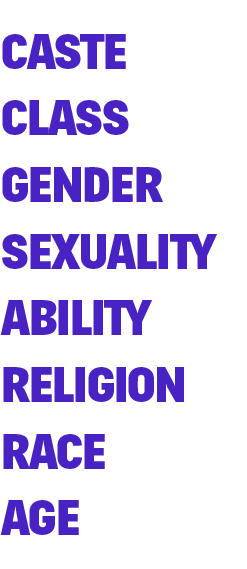Bridging the Care Gap
 Care Provider
Care Provider
Shortfall
Although the country has a suicide rate of 10 in every 100,000 people — it has an extreme shortage of mental health workers — as low as one mental health professional for 100,000 people.
 An Outdated
An Outdated
Approach
Mental health has been historically ignored in the political agenda in India. Despite the high incidence of mental health problems, the focus of the State has been centred on a ‘medical’ model of care with a focus on medication and institutionalisation.
 Human Rights
Human Rights
Violations
Lack of citizenship rights, informed consent,
confidentiality, privacy, incarceration

Marginalisations
Marginalised communities are more susceptible to mental health stressors & find it harder to access services. Systemic barriers and marginalizations specific to an individual’s particular context affect well-being. A holistic, universally accessible mental health ecosystem can exist only through challenging structural inequalities, countering systems of privilege and power, and bringing together diverse standpoints.
 Stigma &
Stigma &
Silence
Pervasive stigma around mental health issues affects an individual’s willingness as well as ability to access resources, creating impediments to provision, and efficacy, of available services. Discrimination from stigma adversely affects a person’s livelihood, education, and family life, as well as their rights within formal and informal spaces.
 Unaffordable
Unaffordable
Services
Quality mental healthcare is largely unaffordable for the Indian population. Mental illness contributes to 31% of global disease burden but receives 1 or <1% funding from national health budgets worldwide. There is a vicious cycle of poverty associated with mental illness in India. The poor are much more likely to experience mental illness and those with mental illnesses are more likely to slide into poverty.

The ‘Bridge the Care Gap’ campaign calls on the Indian political establishment to implement laws & policies that safeguard the rights of persons living with mental health issues, provide quality, accessible and affordable mental health services. and address social and economic disparities that compound mental health issues.



